Ashfaq Ahmed
Celebrated Literary Giant, Writer & Playwright
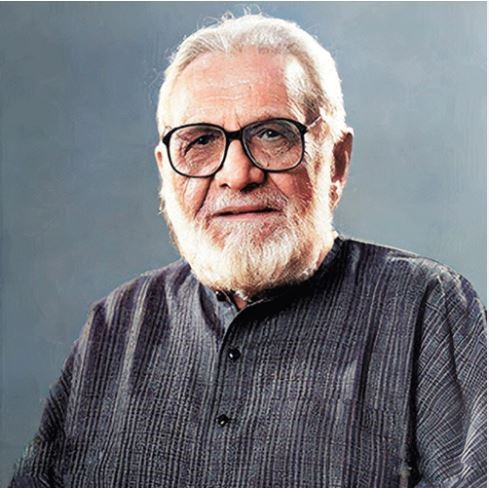 Ashfaq Ahmed
Ashfaq AhmedAshfaq Ahmed is one of Pakistan's most celebrated literary figures, who has contributed extensively to Urdu literature and television. He has also demonstrated his deep spiritual side, which has left an enduring mark on the cultural landscape of the subcontinent.
Ashfaq Ahmed - Early Life and Childhood
Ashfaq Ahmed was born on August 22, 1925, in Muktsar, now in Indian Punjab, to a Pashtun family of the Mohmand tribe.
He was born into a middle-class Muslim family during the twilight years of British colonial rule.
The family environment was conducive to learning, with regular discussions about poetry, philosophy, and religious matters that later profoundly influenced Ashfaq Ahmed's worldview.
His hometown, Muktsar, at that time had a diverse population, comprising Hindus, Muslims, and Sikhs living in relative harmony, which provided him with early insights into the complexities of human nature and interfaith relationships.
Ashfaq Ahmed, as a child, displayed an exceptional aptitude for languages and literature.
He was particularly drawn to Urdu poetry and would often be found reciting verses from classical poets like Mirza Ghalib and Allama Iqbal.
His parents recognized his literary inclinations early on and encouraged his reading habits, providing him with books that ranged from classical Urdu literature to contemporary works.
Ashfaq Ahmed's Education and Formative Years
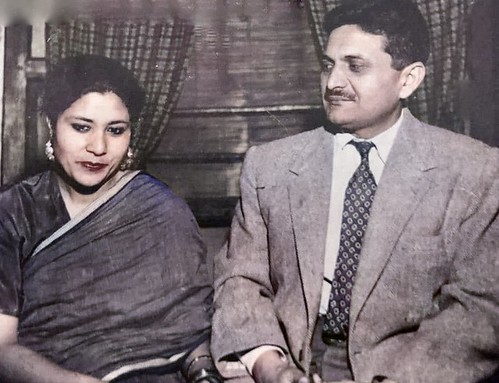 Ashfaq Ahmed and Bani Qudsia - Early Years
Ashfaq Ahmed and Bani Qudsia - Early YearsAshfaq Ahmed's formal education began at the local primary school in Muktsar, where he excelled in Urdu, Persian, and Arabic.
His teachers quickly recognized his exceptional writing abilities and encouraged him to participate in literary competitions.
During his school years, he began writing short stories and poems, many of which were published in local magazines and school publications.
The partition of India in 1947 was a pivotal moment in Ashfaq Ahmed's life.
Like millions of others, his family migrated to Pakistan, settling in Lahore.
This traumatic experience of displacement and the witnessing of communal violence deeply affected Asfaq Ahmed, and that was later portrayed in many of his works, particularly those dealing with themes of identity, belonging, and human suffering.
For his higher education, after the India-Pakistan partition, Ashfaq Ahmed moved to Government College Lahore, one of the most prestigious educational institutions in the region.
At Government College, he pursued his Master of Arts in Urdu Literature, where he was exposed to both classical and modern literary traditions.
The university's rich intellectual environment, with its emphasis on critical thinking and creative expression, proved instrumental in shaping his literary sensibilities.
During his university years, he became actively involved in literary societies and cultural organizations.
He participated in mushairas (poetry gatherings) and literary seminars, where he had the opportunity to interact with established writers and poets.
These experiences broadened his understanding of literature and helped him develop his unique voice as a writer.
Professional Career and Occupations
Asfaq Ahmed, after completing his education, began his professional career as a teacher, working in various schools and colleges in Lahore, including Dyal Singh Mansion College in Lahore.
His passion for education and literature made him a beloved figure among his students, many of whom became prominent figures in Pakistani society. However, his true calling lay in creative writing and broadcasting.
He also traveled the world and got many more certifications.
In the early 1950s, Ashfaq Ahmed joined Radio Pakistan, where he worked as a writer and producer.
This position allowed him to explore new forms of creative expression, particularly radio drama.
His radio plays became immensely popular, establishing him as a significant voice in Pakistani broadcasting.
The medium of radio provided him with a platform to reach a wider audience and experiment with different narrative techniques.
Ashfaq Ahmed's association with Pakistan Television (PTV) began in the 1960s when television was introduced to the country.
He became one of the pioneering figures in Pakistani television drama, writing and producing numerous plays that would become classics of Pakistani television.
His work in television not only entertained audiences but also addressed important social and moral issues, making him a respected voice in Pakistani media.
Throughout his career, Ashfaq Ahmed also worked as a journalist and columnist, contributing regularly to various Urdu newspapers and magazines.
His columns, which often dealt with spiritual and philosophical themes, were widely read and appreciated by intellectuals and common readers alike.
Ashfaq Ahmed' Literary Works and Novels
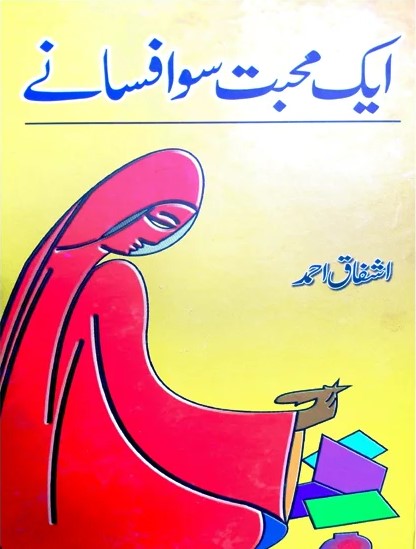 Ashfaq Ahmed's Aik Mohabat Sau Afsana
Ashfaq Ahmed's Aik Mohabat Sau AfsanaAshfaq Ahmed's literary output was prolific and diverse, encompassing novels, short stories, plays, and spiritual writings. His novels, in particular, established him as one of the most important Urdu novelists of the 20th century.
Some of the Famous Novels:
"Gaddariya" (The Shepherd) was one of his most celebrated novels, exploring themes of love, sacrifice, and spiritual awakening. The novel tells the story of a simple shepherd whose life is transformed through various encounters and experiences. The exact number of copies sold may not be known but the novel was widely read and appreciated by critics and readers alike.
"Aag Ka Darya" (River of Fire) is another significant work that deals with the cyclical nature of history and human civilization. The novel spans different periods and explores how human nature remains constant despite changing circumstances. The work is considered a masterpiece of Urdu literature for its philosophical depth and narrative innovation.
"Shehr-e-Afsos" (City of Sorrows) is a novel that reflects Ashfaq Ahmed's deep understanding of human psychology and social dynamics. Set in an urban environment, the novel explores the alienation and moral decay that can result from rapid modernization and social change.
His collection of short stories, "Aur Talash Jari Hai" (And the Search Continues), showcases his mastery of the short story form. These stories often deal with existential themes and the human search for meaning and purpose in life.
Ashfaq Ahmed's Television Plays and Drama
Ashfaq Ahmed's contribution to Pakistani television drama is perhaps his most visible and enduring legacy.
His television plays were not merely entertainment but served as vehicles for moral and spiritual instruction.
Some of his most famous television works include:
"Talash" (The Search) was a groundbreaking television series that explored philosophical and spiritual themes. The program featured Ashfaq Ahmed himself as the host, engaging in discussions with various guests about life, death, and the meaning of existence. The show ran for many years and became a cultural phenomenon in Pakistan.
"Aik Mohabbat Sau Afsanay" (One Love, Hundred Stories) was another popular television series that combined storytelling with moral instruction. Each episode featured a different story, but all were connected by underlying themes of love, compassion, and human dignity.
"Khuda Ki Basti" (God's Settlement) was a television adaptation of one of his novels, dealing with the lives of people living in urban slums and their struggles for dignity and survival.
His television plays were characterized by their focus on moral and ethical issues, their exploration of spiritual themes, and their emphasis on the importance of human values in an increasingly materialistic world.
Ashfaq ahmed's Achievements and Recognition
Throughout his career, Ashfaq Ahmed received numerous awards and honors for his contributions to literature and broadcasting.
He was awarded the Pride of Performance, one of Pakistan's highest civilian honors, in recognition of his services to literature and media. He also received the Sitara-e-Imtiaz, another prestigious civilian award.
His works have been translated into several languages, including English, making his ideas accessible to a broader international audience.
Universities in Pakistan and abroad have included his works in their curricula, ensuring that future generations continue to study and appreciate his contributions.
Ashfaq Ahmed's influence extended beyond literature and television.
He was also a respected spiritual teacher and philosopher, with many people seeking his guidance on matters of faith and personal development.
His spiritual discourses and writings on Sufism and Islamic philosophy have been compiled into several books.
Family Life and Personal Relationships
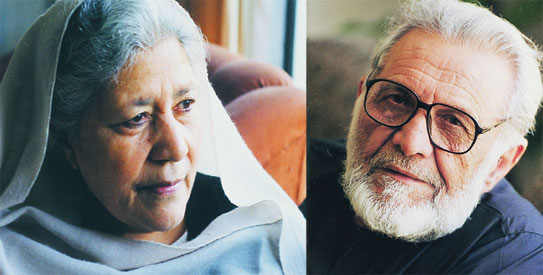 Ashfaq Ahmed & Bani Qudsia
Ashfaq Ahmed & Bani QudsiaAshfaq Ahmed was married to Bano Qudsia, herself a distinguished writer and playwright.
Their marriage was not only a personal union but also a literary partnership that enriched Pakistani literature.
Bano Qudsia was the author of several acclaimed novels and television plays, and together they formed one of the most celebrated literary couples in Pakistani history.
The couple had children who also pursued careers in literature and media, continuing the family's tradition of creative expression.
Their home in Lahore became a gathering place for intellectuals, writers, and artists, serving as an informal salon where ideas were exchanged and literary projects were discussed.
Ashfaq Ahmed's relationship with his wife was characterized by mutual respect and intellectual compatibility.
They often collaborated on projects and supported each other's creative endeavors. Their partnership serves as an example of how personal relationships can enhance and enrich creative work.
They have three sons: Aneeq Ahmed Khan, Anees Ahmed Khan, and Aseer Ahmed Khan.
Legacy and Continuing Influence
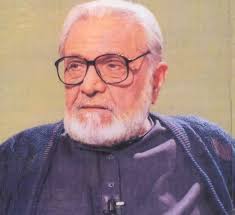
Ashfaq Ahmed passed away on September 7, 2004, after having been diagnosed with pancreatic cancer.
His legacy continues to influence Pakistani literature and culture. His works remain popular among readers of all ages, and his television plays are still broadcast and watched by new generations of viewers.
Educational institutions in Pakistan continue to study his works, and scholars regularly produce research on various aspects of his writing.
His approach to combining entertainment with moral instruction has influenced many contemporary writers and television producers.
The Ashfaq Ahmed Foundation, established after his death, works to preserve his literary legacy and promote the values he championed throughout his life. The foundation organizes literary events, publishes its works, and provides scholarships to young writers and students.
His influence on Pakistani television drama is particularly significant, as he helped establish many of the conventions and standards that continue to guide Pakistani television production today.
His emphasis on quality content and moral messaging set a benchmark that many contemporary producers strive to achieve.
Conclusion
Ashfaq Ahmed's life and work represent the best of Pakistani literary and cultural achievement.
From his humble beginnings in a small Indian town, he accomplished a status as one of Pakistan's most beloved writers. His journey exemplifies the power of literature to transcend boundaries and touch human hearts.
Through his novels, plays, and television programs, he addressed the fundamental questions of human existence while entertaining and educating his audience.
Ashfaq Ahmed's legacy serves as a reminder of the important role that writers and artists play in society.
In a world often divided by differences, his message of universal human values and spiritual awakening remains as relevant today as it was during his lifetime.
The life of Ashfaq Ahmed demonstrates that true literary greatness lies not just in artistic achievement but in the ability to touch human souls and inspire positive change in society.
His enduring popularity and influence confirm his position as one of the most important literary figures in the history of Pakistan and the broader Urdu-speaking world.
You may read more about Ashfaq Ahmed on Wiki